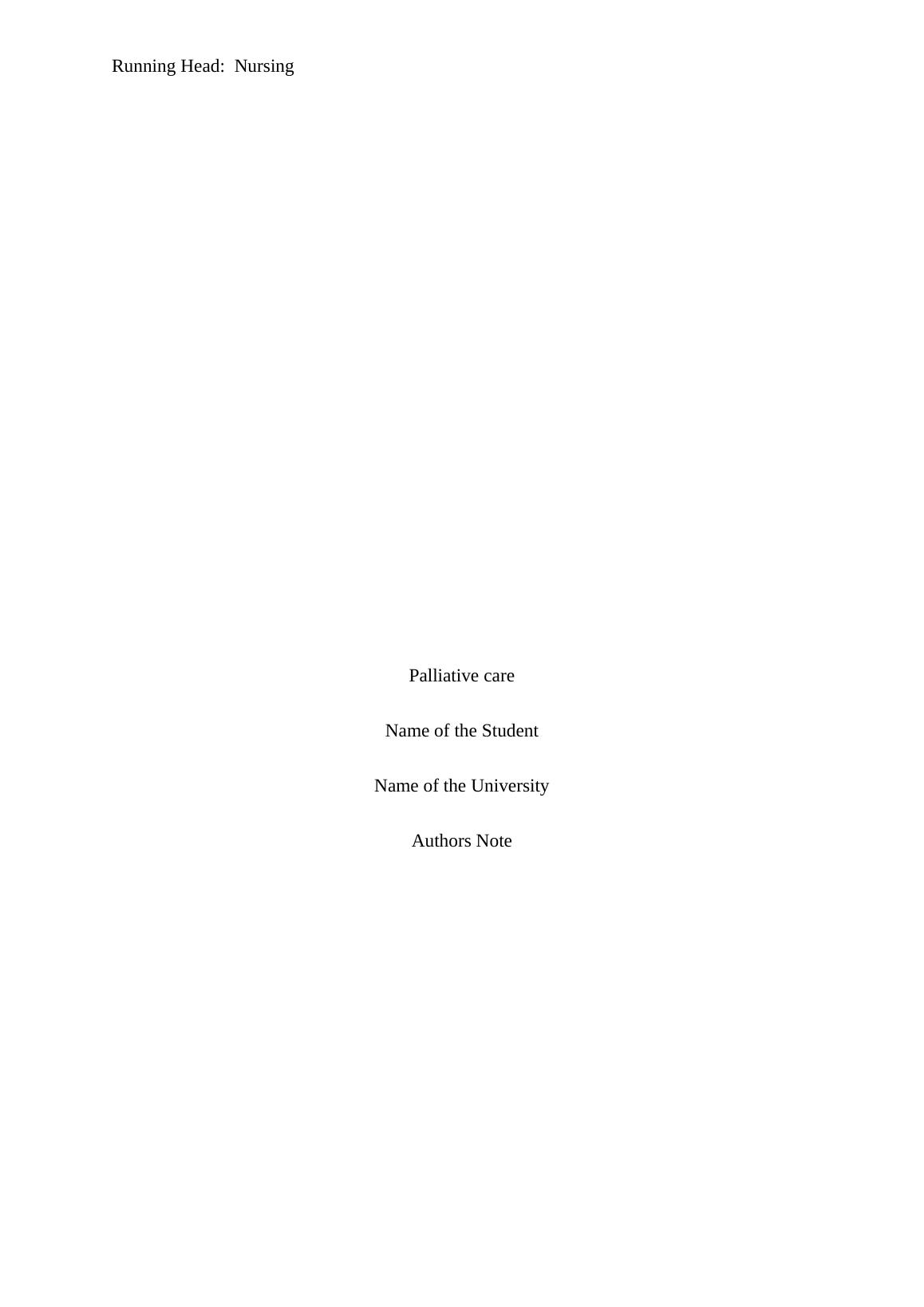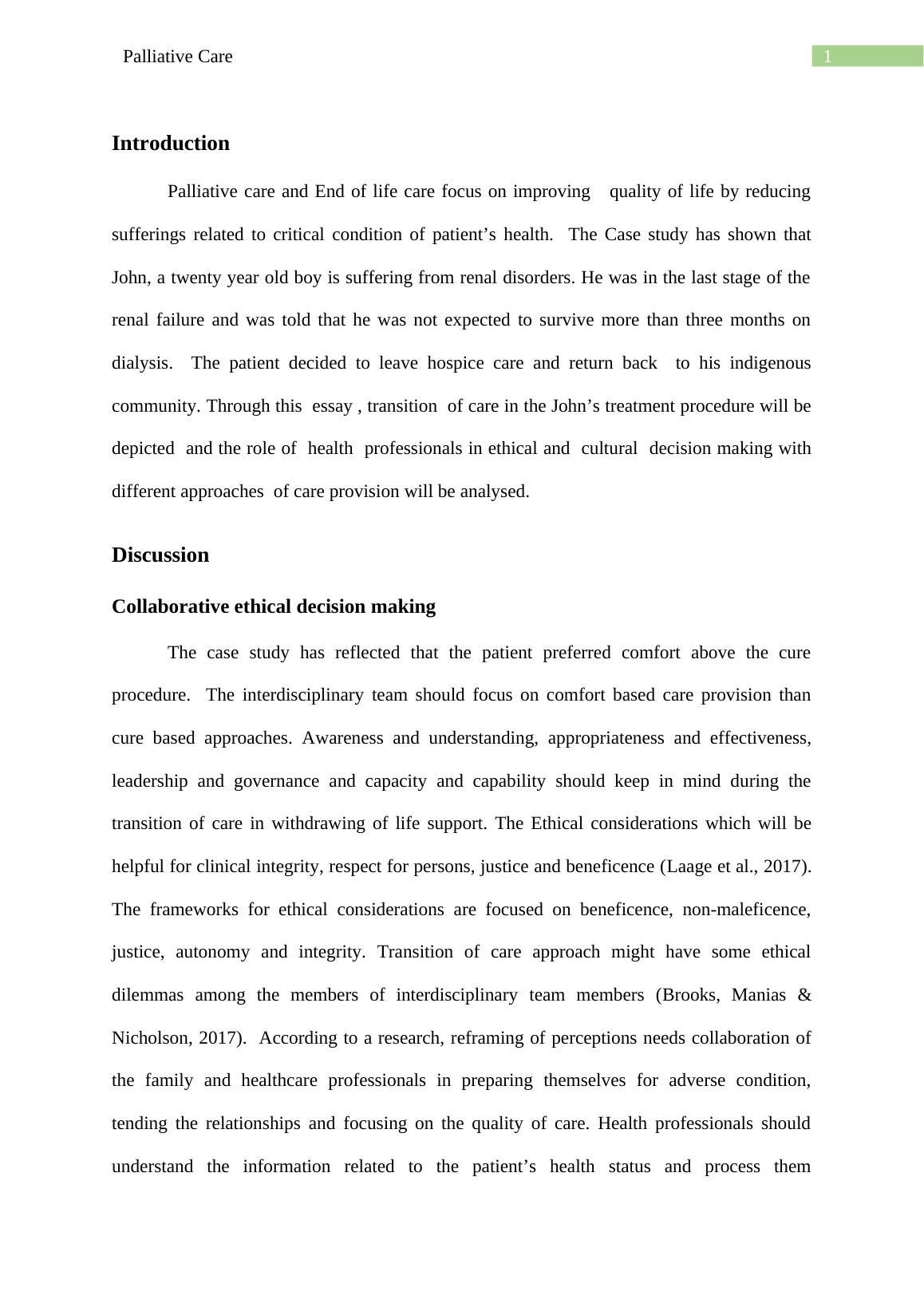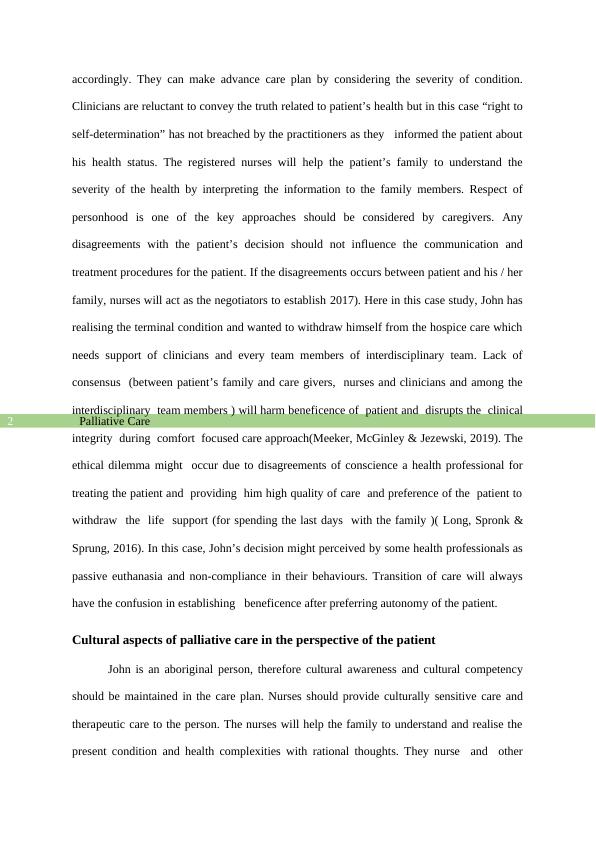The Palliative Care
Assess the ability of students to think deeply and carefully about ethical decision making, cultural care requirements, and personal beliefs when caring for John.
7 Pages1750 Words21 Views
Added on 2022-08-27
The Palliative Care
Assess the ability of students to think deeply and carefully about ethical decision making, cultural care requirements, and personal beliefs when caring for John.
Added on 2022-08-27
ShareRelated Documents
End of preview
Want to access all the pages? Upload your documents or become a member.
Case Study Analysis | Nursing Assignment
|9
|2138
|30
Palliative Care | Case Study
|6
|1734
|15
Autonomy is one of the ethical
|7
|2017
|12
Australian Multi-Jurisdictional Dataset
|9
|2039
|17
Reflective Case Study | Registered Nurse
|7
|1793
|20
The comorbidities and complex symptoms
|7
|1838
|25



